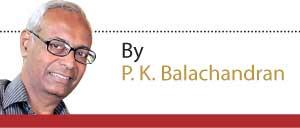Reply To:
Name - Reply Comment
"The Ministry of Education has revised its school textbooks to ensure that they do not include intolerant language, and regularly audits these textbooks and curricula to ensure that teachers do not espouse intolerance or extremism"
The Kingdom of Saudi Arabia (KSA), which houses the holiest places of Islam, has been a target of Islamic terrorism like many other countries in the world. There have been 11 intercepted missile attacks over Riyadh since the first missile attack on November 4, 2017, the most recent on December 6, 2021. In March 2019, the KSA issued a document on terrorism in the country which said that it had faced more than 60 terrorist attacks by Daesh (aka ISIS) and that more than 200 civilians and security personnel were killed in these attacks.
terrorism like many other countries in the world. There have been 11 intercepted missile attacks over Riyadh since the first missile attack on November 4, 2017, the most recent on December 6, 2021. In March 2019, the KSA issued a document on terrorism in the country which said that it had faced more than 60 terrorist attacks by Daesh (aka ISIS) and that more than 200 civilians and security personnel were killed in these attacks.
However, the KSA is tackling terrorism and the terrorist/radical mind in a firm way, using both ideological re-education and strong arm methods judiciously, to get the best results. The KSA’s latest act against terror is the proscription of the Tablighi Jamaat (TJ). The TJ has been described by the government as “one of the gates of terrorism”. The Minister of Islamic Affairs Dr. Abdullatif Al Alsheikh has asked mosque clerics to expose the dangers of, and falsehoods in, the preaching of the TJ, along guidelines given by the ministry.
 The Tablighi Jamaat (Society for Spreading the Faith) is a Sunni Islamic missionary movement that urges Muslims to return to a pure form of Islam and observe rules all its rules. The founder of TJ is Muhammad Ilyas al-Kandhlawi from Deoband in North India. Founded in 1927, the TJ is against Westernization and Secularization. Indian security experts say that the TJ is so orthodox in its interpretations of Islam that it can convert moderate Muslims into radicals. “Deep immersion in any religion, not just Islam, can lead to radicalization,” opines Indian security expert Ajai Sahni. Because of a lack of centralized control, TJ’s preachers improvise, with some inclined towards terrorism. The TJ operates in 150 countries.
The Tablighi Jamaat (Society for Spreading the Faith) is a Sunni Islamic missionary movement that urges Muslims to return to a pure form of Islam and observe rules all its rules. The founder of TJ is Muhammad Ilyas al-Kandhlawi from Deoband in North India. Founded in 1927, the TJ is against Westernization and Secularization. Indian security experts say that the TJ is so orthodox in its interpretations of Islam that it can convert moderate Muslims into radicals. “Deep immersion in any religion, not just Islam, can lead to radicalization,” opines Indian security expert Ajai Sahni. Because of a lack of centralized control, TJ’s preachers improvise, with some inclined towards terrorism. The TJ operates in 150 countries.
Impact of 9/11
The great importance of controlling terrorism dawned on the KSA post-9/11, because Osama bin Laden and the terrorists who carried out the air attack on the Twin Towers in New York were Saudis.
According to the March 2019 government document, the KSA had, by 2019, faced more than 60 terrorist attacks by Daesh (ISIS) in which more than 200 citizens and policemen were killed. There was also a “significant increase” in the social media rhetoric against the Saudi government.
To counter terrorism, the KSA signed an agreement with the UN to launch the United Nations Counter-Terrorism Centre in 2011. In 2014, the government issued a royal decree which said that acts of terrorism, including membership in terrorist organizations and participation in hostilities outside the Kingdom, will not be tolerated. As a member of the Global Coalition to Counter ISIS, the KSA took part in coalition air strikes in Syria. By March 2017, the KSA had flown 341 sorties against the ISIS in Syria, second only to the US.
In December 2015, the KSA announced the formation of a multi-nation Islamic Military Counterterrorism Coalition with a joint operations center in Riyadh. In order to streamline and enhance counterterrorism efforts, King Salman created the “Presidency of State Security” in July 2017, and kept it under himself. By 2019, Saudi security forces had arrested more than 300 foreign members of the ISIS.
Terrorist Financing
In order to combat terrorist financing, the KSA has enacted one of the strictest financial control systems in the world, winning kudos from the Financial Action Task Force (FATF), which said that the KSA had “demonstrated an ability and willingness to pursue terrorist financing, which resulted in over 1700 investigations and convictions since 2013.”
The KSA and the US established and co-chaired the Terrorist Financial Targeting Centre (TFTC) in May 2017. Since its establishment, the TFTC has designated a number of terrorists from a variety of groups, including Al-Qaeda in the Arabian Peninsula (AQAP), Hezbollah and the Taliban. Saudi Arabia has established a Financial Intelligence Unit (FIU), which is a member of the Egmont Group. The FIU has signed 31 MOUs with its counterparts on exchange of information. The KSA has contributed US$ 1 million to this organization.
Saudi charities cannot operate abroad except through the King Salman Humanitarian Aid and Relief Centre or the Saudi Red Crescent, which are under the government. The collection of cash contributions in mosques and public places is prohibited. Saudi authorities have closed down unlicensed money-exchange or money-transfer centres.
Changing the Mindset
As early as in March 1992, King Fahd had taken a decision to create the Saudi Consultative Council (Majlis Al-Shura) to obtain a “unified mind, hand and word” on combating terrorism. In May 2017, Saudi Arabia inaugurated the Global Central for Countering Extremist Ideology (Etidal). The Centre has developed innovative techniques that can monitor, process and analyze extremists’ speeches with high accuracy. The Ministry of Education has revised its school textbooks to ensure that they do not include intolerant language, and regularly audits these textbooks and curricula to ensure that teachers do not espouse intolerance or extremism. Imams who preach intolerance or hate toward others are dismissed, punished, or retrained.
The National Dialogue Forum of the King Abdulaziz Centre for National Dialogue (KACND) was instituted “to combat extremism and foster a pure atmosphere that gives rise to wise positions and illuminating ideas that reject terrorism and terrorist thought.” On July 5, 2016, King Salman bin Abdulaziz, the Custodian of the Two Holy Mosques said: “The Kingdom of Saudi Arabia is determined, God willing, to strike with an iron fist those who target the minds and attitudes of our youth.” On November 27, 2017 Crown Prince Mohammed bin Salman said: “We will not allow terrorists to distort our peaceful religion. Today we are sending a strong message that we are working together to fight terrorism. Today we affirm that we will pursue terrorism until it is eradicated completely.”
On July 8, 2016, Sheikh Khalid Ali Al-Ghamedi Imam of the Grand Mosque in Mecca said: “The greatest and most appalling of all sins is for anyone to deliberately and premeditatedly shed the blood of innocent people, wreak chaos and havoc and undermine security and stability in order to achieve the evil goals of criminal gangs and sectarian terrorist organizations.”
Kudos from US
On June 2, 2016, the US Department of State Country Reports on Terrorism for the year 2015 said: “The Saudi government took a zero-tolerance stance on ISIL (Islamic State of Iraq and the Levant which is also known ISIS) condemning its activities and participating in coalition military action to defeat the group in Syria and Iraq. Its external military action against ISIL in Syria as a part of the US-led coalition was complemented by an aggressive campaign by both official clerics and King Salman to discredit the group and condemn its activities as acts of terrorism.”
A thesis written by Fahad Al Doghere of the KSA’s Naval Special Forces says that terrorism and terrorists began to appear in KSA after 45,000 Saudis returned home after fighting the Soviets in Afghanistan in a war funded and supported by the US in the 1980s.
Two-pronged approach
Al Doghere says that the KSA took a two-pronged approach to terrorism – a harsh militaristic one and a soft ideological one. It was felt that using only violence would lead to more violence and that overt pursuit and declared war should be used only after peaceful efforts were exhausted.
The KSA has always felt that action should be taken at the religious, intellectual, social, economic and political levels and not just at the military level. Given this comprehensive view, the government has undertaken many and varied actions throughout the century to confront terrorism. The government is now promoting science education and minimizing the tendency to study only the arts and religion. Government has succeeded in changing the curriculum after dismissing more than 1000 “extremist” Imams. It has also cut the flow of funds to the Wahhabi Madrasas. US researchers have found the rehabilitation programmes to be useful as only a minuscule percentage had gone back to extremism.